
2015 National Elections
Guatemala’s national elections in 2015 came amidst public demonstrations for better, more transparent government, a turbulent time for the country.
The election monitoring group Acción Ciudadana (AC; “Citizen Action”) undertook an observation focused on illuminating not only the realities of campaign finance and corruption, but also electoral violence, with a particular focus on violence against women in elections as well as violence targeting LGBTI (lesbian, gay, bisexual, transgender and intersex) and indigenous communities.
Over the course of the observation, AC, the Guatemalan chapter of Transparency International, was able to collect a great deal of information, in large part because they had created their forms with an intent to capture data that was disaggregated in a number of ways, including gender, ethnicity and sexual orientation. In doing so, they created an observation that allowed them to see the effects of several types of marginalization — including the marginalization of women through VAW-E — and analyze their data through an intersectional perspective.
BEFORE THE ELECTION
AC deployed observers in 20 municipalities over several months before election day, as well as during the period between election day in September and the run-off election in October. They monitored the campaign spending of political parties, and reported incidents of violence they saw, indicating where those incidents were targeted at women, LGBTI or indigenous persons.
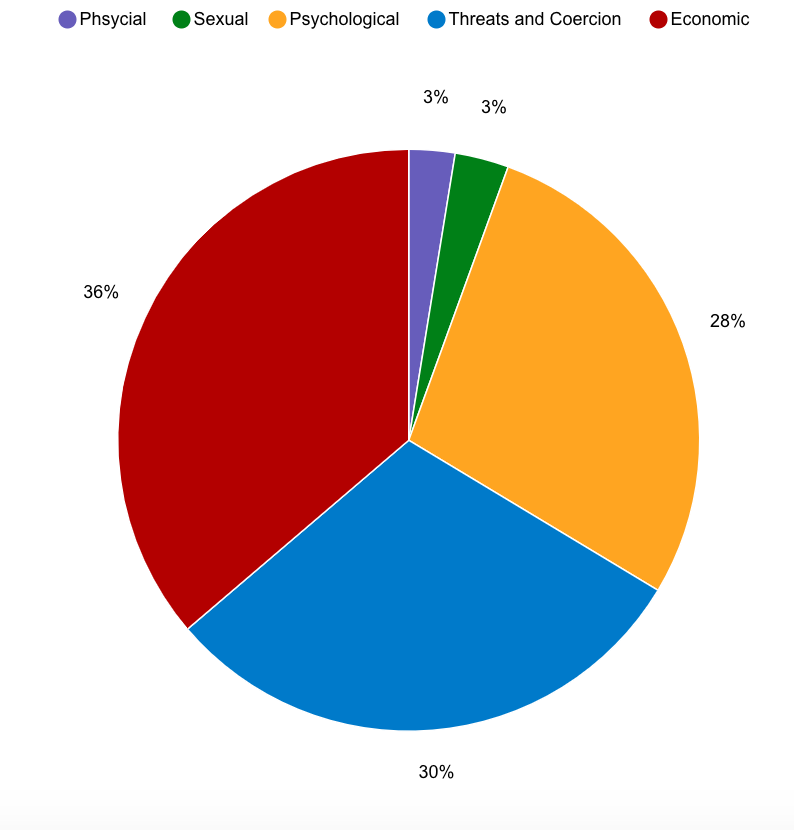
Guatemala Pre-Election Violence by General Categories
Overall, most reported incidents of violence were economic (36%), threats and coercion (30%) or psychological (28%).
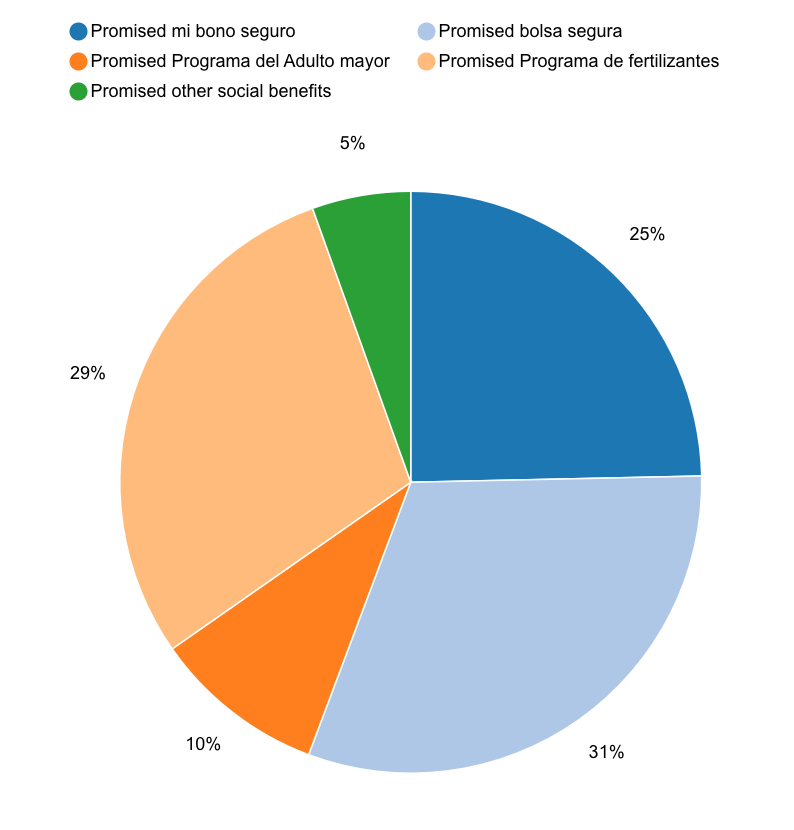
Guatemala Pre-Election Social Benefits
An area of concern prioritized in the observation was coercion of voters through social benefit programs. Of the incidents of coercion reported, the programs “Bono Seguro” and “Bolsa Segura” were the most likely to be targeted.
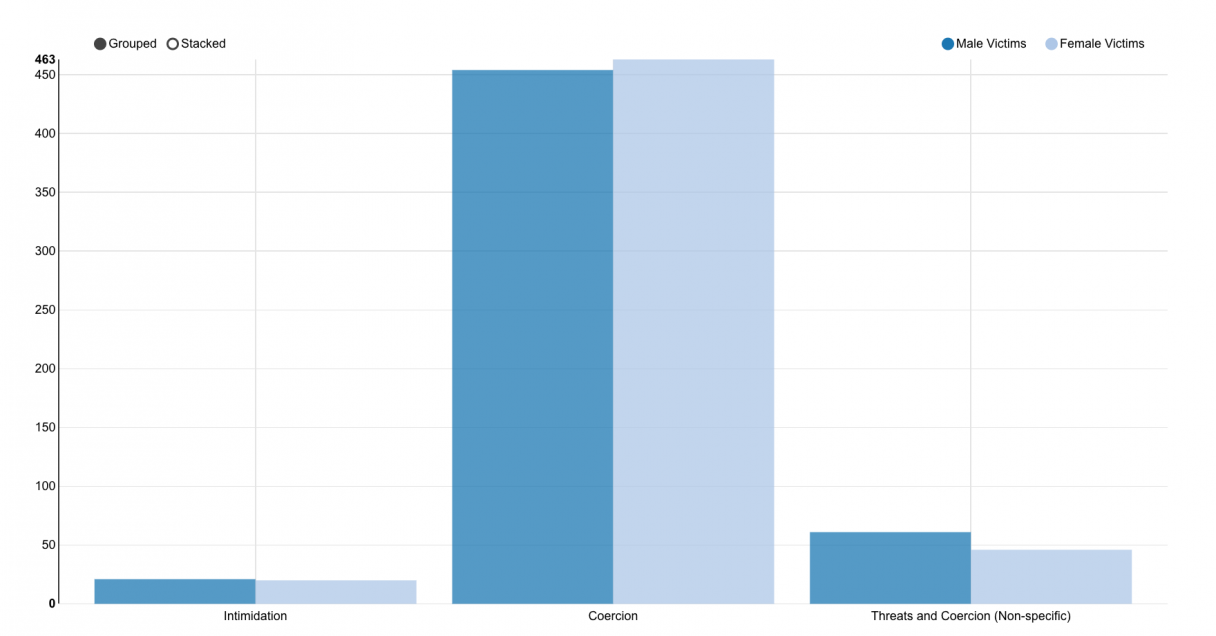
Guatemala Pre-Election Threats and Coercion Violence by Gender and Category
The social benefit programs that had the highest number of reported incidents of coercion also also had the highest percentages of women enrolled, indicating that women were disproportionately impacted by coercion.
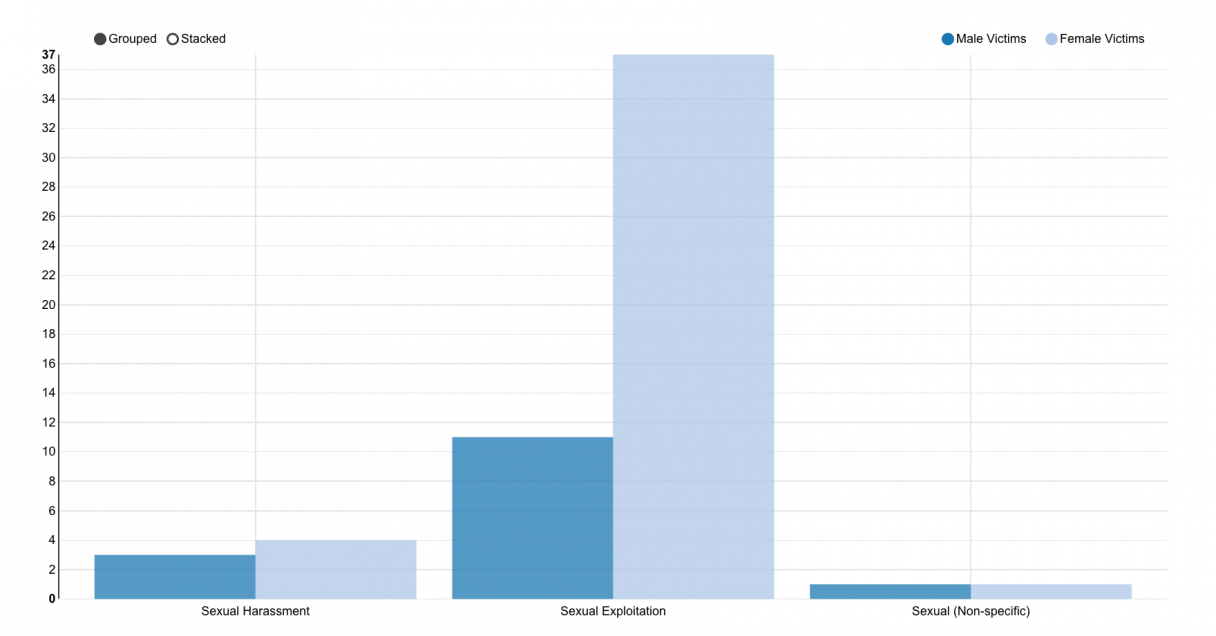
Guatemala Pre-Election Sexual Violence by Gender and Category
Guatemalan law prohibits the sexual exhibition of persons to draw attention to a campaign or political party event. Of incidents of this violence that were reported, women were most likely to be exhibited in this way.
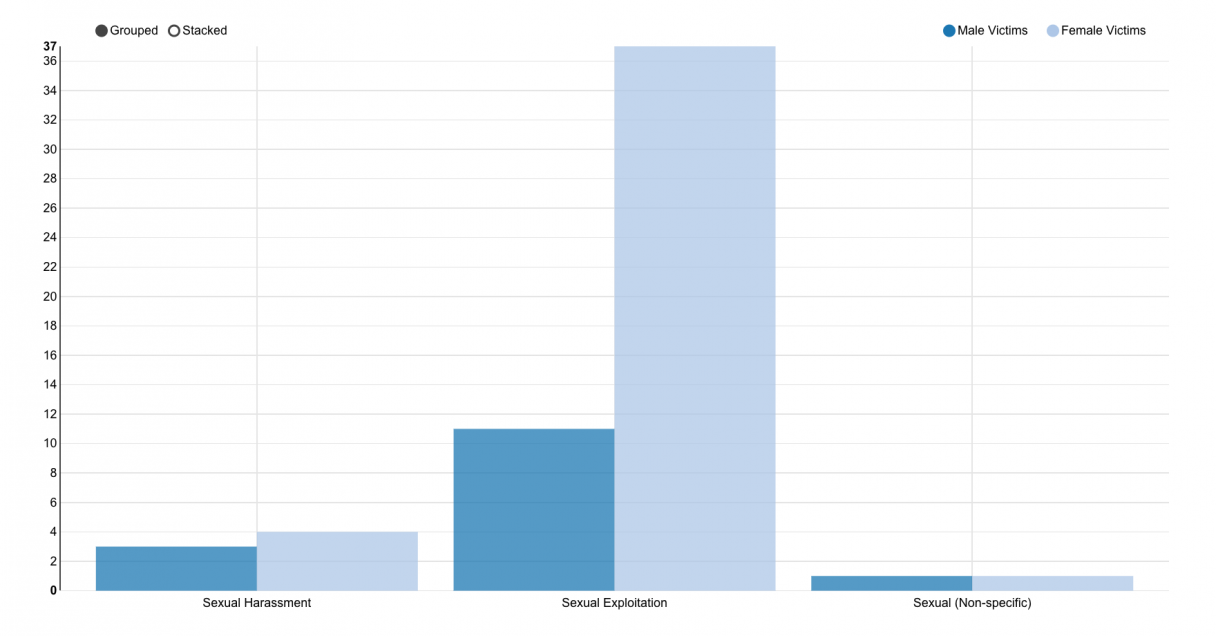
Guatemala Pre-Election Physical Violence by Gender and Category
Men were more likely to be targeted by physical violence than women; this may be because men were more likely to be running for high-profile positions.
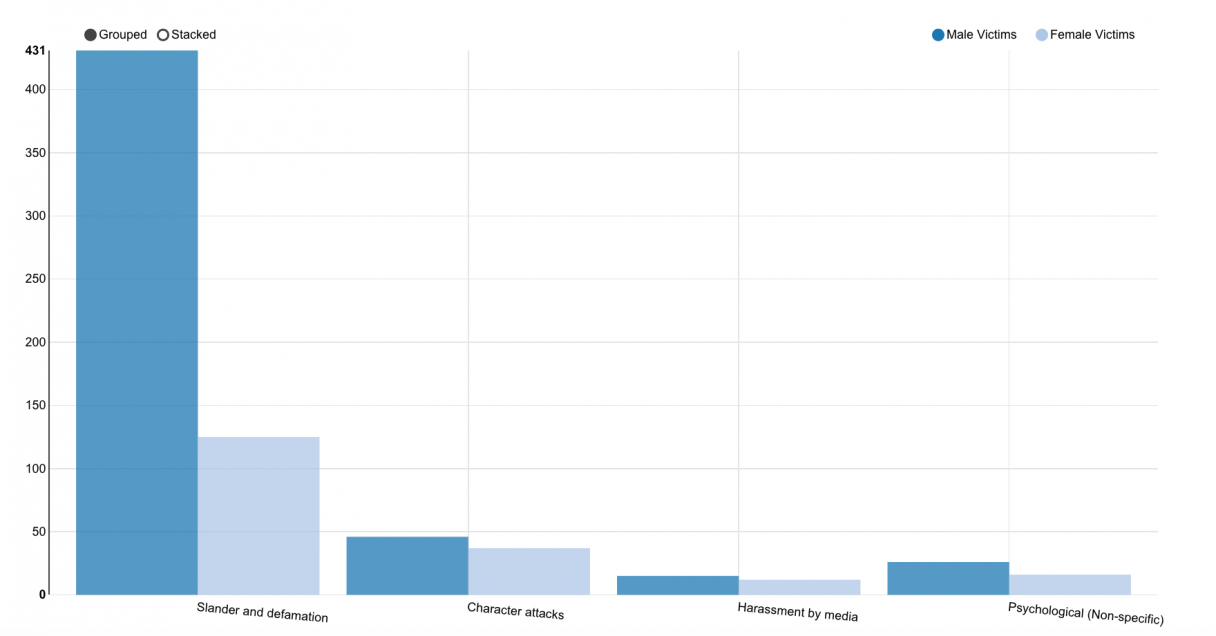
Guatemala Pre-Election Psychological Violence by Gender and Category
Likewise, reported incidents of psychological violence, in particular slander and defamation, were more likely to target men, who were more likely to be running for high-profile local posts, such as mayoral positions.
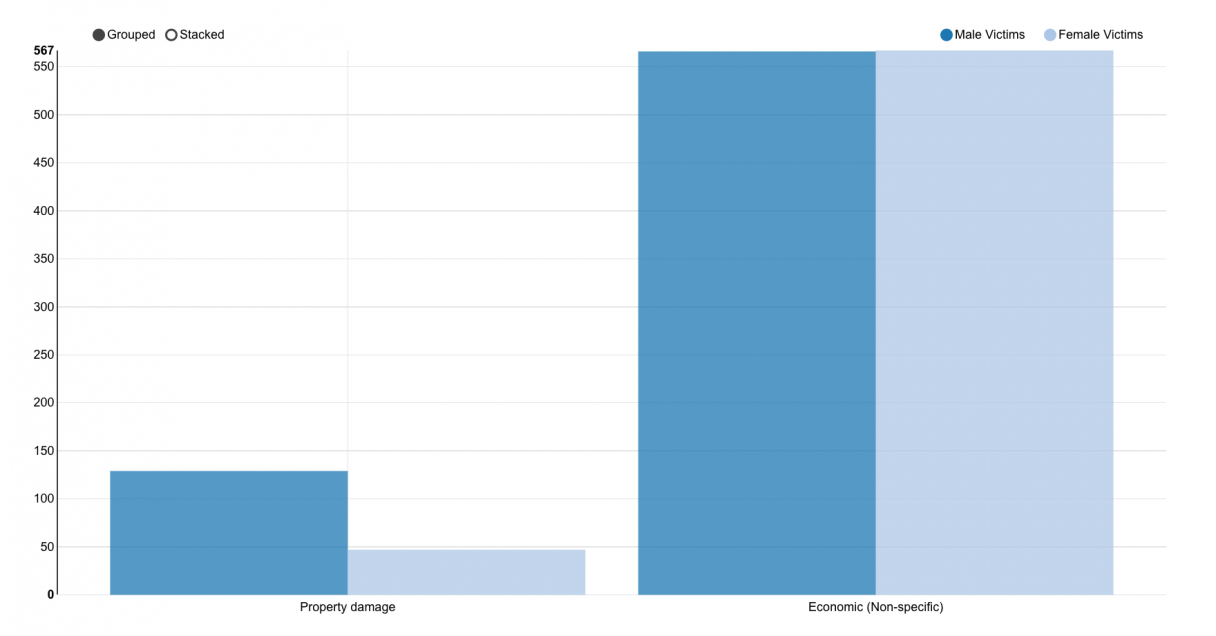
Guatemala Pre-Election Economic Violence by Gender and Category
Economic violence reported by observers indicated that men were more often targeted by property damage, but that men and women were similarly targeted for other forms of economic violence such as bribery and economic coercion.
ELECTION DAY
On election day, observers remained stationed in the same 20 municipalities, reporting to AC about the forms of violence they witnessed and who the victims and perpetrators were.
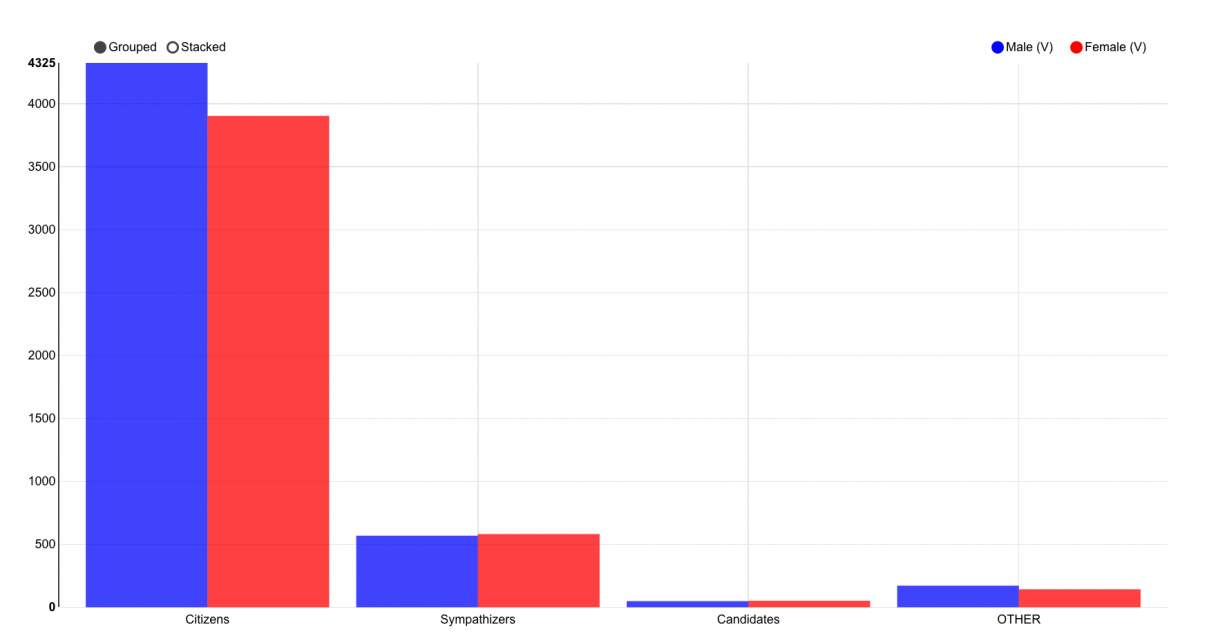
Guatemala Election Day - Victims by Role and Gender
Reported incidents of violence were primarily aimed at citizens; that is, Guatemalans who were not candidates, officials, or dedicated party supporters (sympathizers).
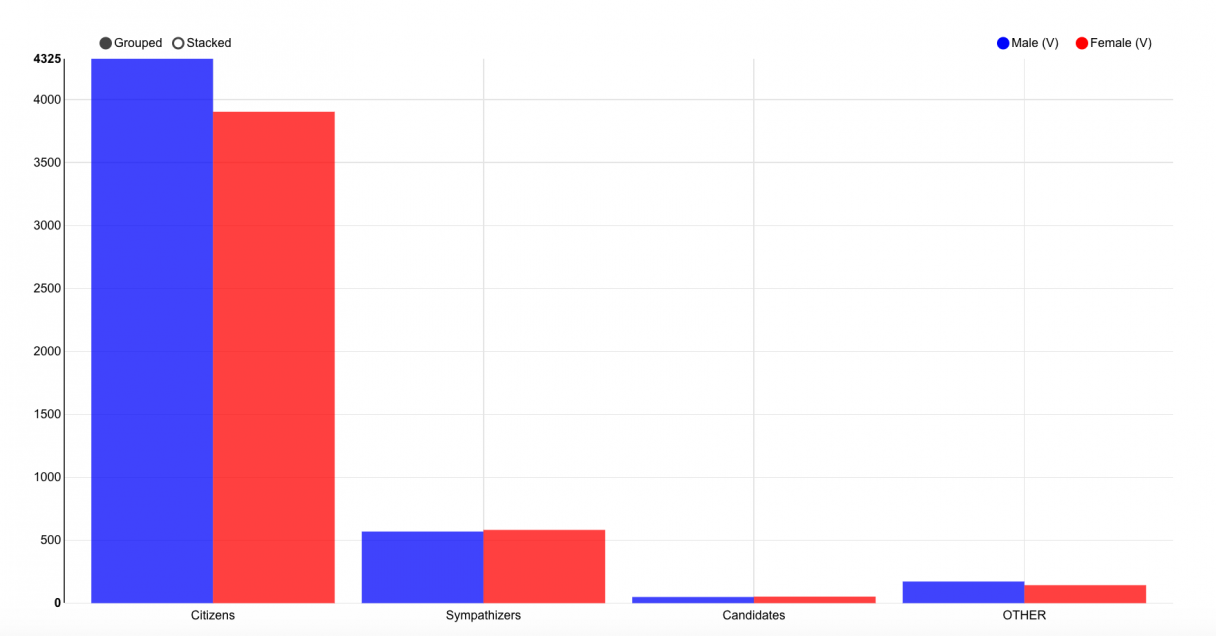
Guatemala Election Day - Perpetrators by Gender and Role
Citizens were also most likely to be the perpetrators in the reported incidents of violence; while men were most likely to perpetrate violence overall, women were also a significant percentage of perpetrators.
ABOUT THE OBSERVATION
In its observation of the 2015 Guatemalan national elections, Acción Ciudadana conducted an observation throughout the pre-election period, as well as election day, the day of the run-off presidential election, and the period between the initial election day and the run-off.
Observers were stationed in 20 municipalities across Guatemala, chosen for their history or likelihood of violence, particularly during elections. Observers in the pre-election monitoring effort sent regular reports to AC that recorded any violence that they had personally witnessed, as well as incidents of violence that were reported to them by formal committees of community leaders that they had organized, with whom they met to collect further reports of violence.
Other countries
The Votes Without Violence project, initially developed by the National Democratic Institute, has examined violence against women in elections in the following countries. You can view each country's data individually or check out our cross-country analysis.
Burma
Cote D'Ivoire
Contested claims of victory during Côte d’Ivoire’s 2010 presidential election—the first in a decade—triggered widespread post-election violence, in which women were often the first victims.